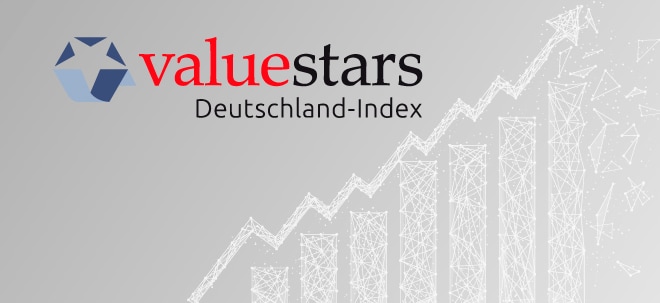Bangladesh's Garments Revolution: New Report Challenges Global Fashion to Rethink Outdated Narratives
NEW YORK, May 12, 2025 /PRNewswire/ -- Twelve years after the Rana Plaza tragedy, Bangladesh's garment industry has undergone a profound transformation. A new report from the Center for Media and Peace Initiatives (CMPI) urges global brands, policymakers, and media to recognize Bangladesh not as a cautionary tale, but as a model for ethical, sustainable, and resilient manufacturing.
The report, Beyond the Stereotype: Rethinking Bangladesh's Textile Industry, highlights Bangladesh's emergence as a leader in ethical and sustainable apparel production. With 240 LEED-certified green factories—more than any other country—and a surge in unionized labor, Bangladesh is redefining the global garment landscape.
Yet outdated media narratives continue to obscure this progress. This report corrects these narratives, dismantling the myth of Bangladesh as a low-compliance, low-quality producer. The report reveals how sweeping reforms have transformed the industry into a leader in labor rights, environmental responsibility, and scalable industrial innovation.
"The world faces a triple threat: fractured supply chains, worsening climate shocks, and rising worker exploitation," said Taiwo Meghoma, a contributor to the report. "Bangladesh has done the hard work to confront these challenges – now it's time for the rest of the world to [reassess] how it engages with sourcing countries."
"In an era of fractured supply chains and escalating protectionism, Bangladesh is not just ready to step in – it already has," adds report author Dr. Uchenna Ekwo. "What's needed now is a shift in how the world engages – with policies, sourcing strategies, and capital flows that reflect the Bangladesh of today, not the one remembered from a decade ago."
Key Findings:
- Safety Overhaul: The Accord on Fire and Building Safety, signed by over 200 brands, has led to more than 56,000 inspections and 140,000 safety upgrades, safeguarding over 2 million workers.
- Green Leadership: Bangladesh now boasts 240 LEED-certified garment factories, including 98 with Platinum certification, positioning it as a global leader in sustainable manufacturing.
- Empowered Workforce: Registered garment-sector unions have increased from fewer than 300 in 2012 to over 1,300 in 2025, reflecting a significant shift towards worker empowerment.
- Gender Equality Initiatives: Programs like the Gender Equality and Returns initiative have trained thousands of women for higher-paid roles, promoting inclusivity and economic advancement.
- Economic Resilience: With apparel exports reaching $38.4 billion in 2024, Bangladesh has become a preferred sourcing destination amid global trade realignments.
A Call to Action:
Despite these advancements, outdated perceptions persist. CMPI calls on global stakeholders to:
- Adopt Strategic Sourcing: Recognize Bangladesh's leadership with fairer, long-term contracts that reward ethical performance.
- Implement Policy Reforms: Align trade and compliance regulations with current performance metrics, moving beyond outdated reputations.
- Ensure Media Accountability: Prioritize accurate reporting that reflects verified progress over sensationalist narratives.
About the Center for Media and Peace Initiatives:
The Center for Media and Peace Initiatives (CMPI) is a New York-based think tank with Special Consultative Status at the United Nations Economic and Social Council (ECOSOC).
CMPI has worked with leading U.S. platforms and institutions, including the U.S. Institute for Peace, where it hosted a landmark event in 2014, and the United States–Africa Leaders' Summit organized by the Obama Administration that same year. In 2020, CMPI partnered with YouGov and Arab News to deliver programming around the U.S. presidential election, further cementing its role as a bridge between global and American media-policy ecosystems.
Through its research publications, international conferences, and editorial outreach, CMPI engages a readership concentrated in Washington, New York, and key U.S. academic and diplomatic circles, while also reaching policy influencers in Africa, Europe, and the Middle East.
About the Authors:
Beyond the Stereotype: Rethinking Bangladesh's Textile Industry was authored by:
- Taiwo Meghoma: With a distinguished record of contributions to international fashion diplomacy – including serving as Fashion Director for the Royal African Society's 120th Anniversary Gala under the patronage of HRH Prince William –Meghoma has consulted at New York and Portugal Fashion Weeks and collaborated with over 20 embassies to spotlight ethical fashion on the world stage. He is a recognized speaker on branding across global fashion and business communities.
- Dr. Uchenna Ekwo: President of the Center for Media and Peace Initiatives and research faculty at CUNY's Medgar Evers College, Dr. Ekwo is a journalist-turned-scholar specializing in global media systems and public policy. He has worked across Africa and the U.S. to promote media reform, narrative justice, and ethical governance.
- Dr. Nathalie Beasnael: A global health leader and climate advocate, Dr. Nathalie Beasnael is the founder of Health4Peace, which delivers critical medical support to hospitals across West and Southern Africa. As Diplomatic Envoy of the Republic of Chad to the United States, she represents her nation on global development platforms, including the UN's COP28 summit. She is also an actress and activist.
Full biographies available upon request.
The full report can be found here: https://www.mycmpi.org/beyond-the-stereotype-rethinking-bangladeshs-textile-industry/
For media inquiries or interviews with the report authors, please contact:Dr. Uchenna Ekwo at: uchenna@mycmpi.org
![]() View original content:https://www.prnewswire.com/news-releases/bangladeshs-garments-revolution-new-report-challenges-global-fashion-to-rethink-outdated-narratives-302451340.html
View original content:https://www.prnewswire.com/news-releases/bangladeshs-garments-revolution-new-report-challenges-global-fashion-to-rethink-outdated-narratives-302451340.html
SOURCE Center for Media & Peace Initiatives

